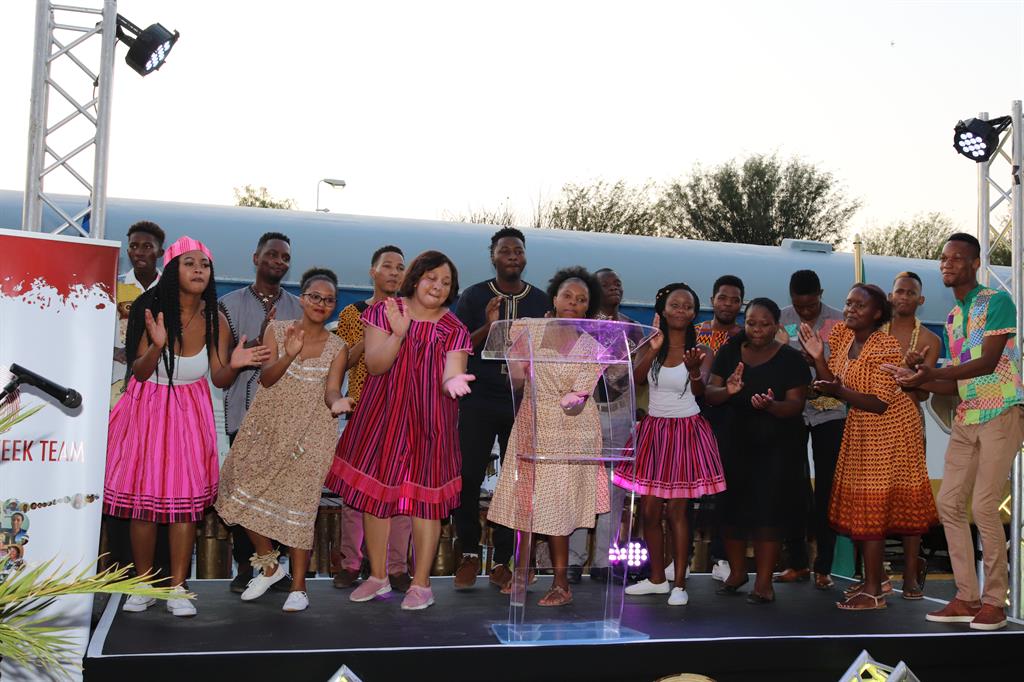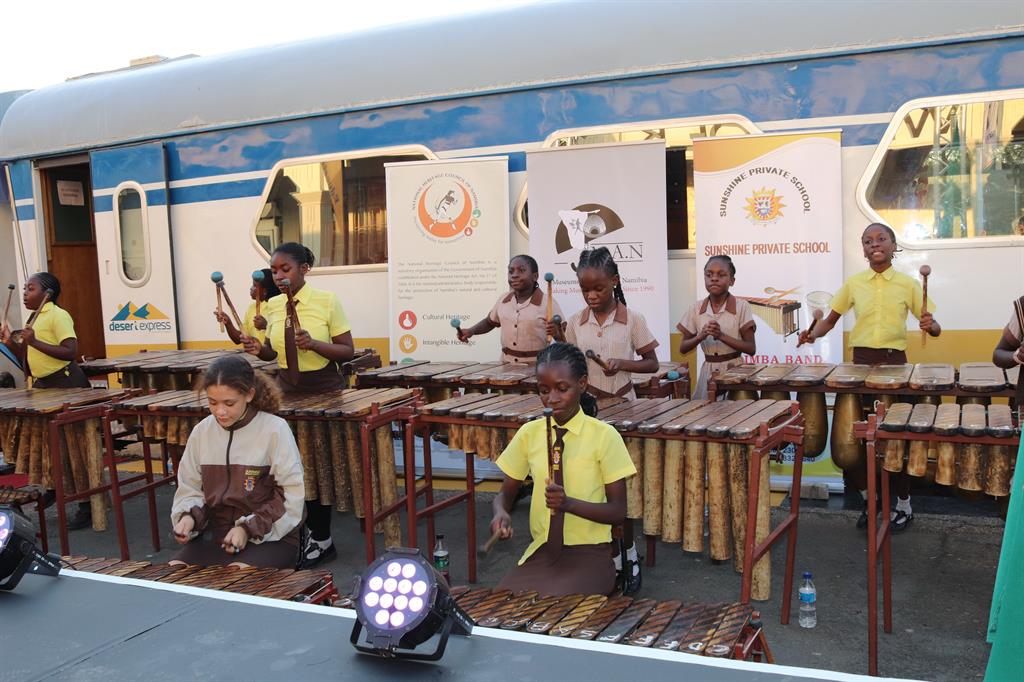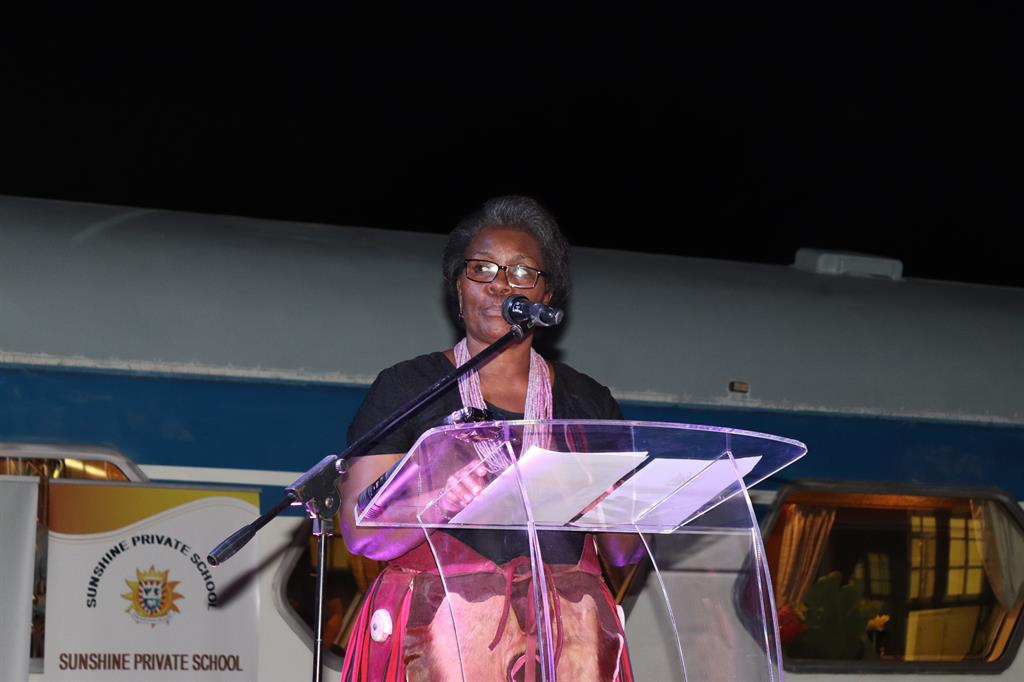Understanding your roots
Namibian Heritage Week plays an important role in nation-building and nurturing unity in diversity.
Justicia Shipena
While encouraging Namibians to appreciate and visit heritage attractions, Namibian Heritage Week strives to provide an opportunity for citizens to participate in a celebration of our natural and cultural heritage.
Hosted by various art institutions under the theme ‘Namibiab /no/auba sao’, a Khoekhoegowab phrase translating to ‘follow the Namibian beat’ the weeklong event took place from 16 to 22 September. This year, events took place in 10 regions across the country, an improvement from the eight last year.
With the aim of encouraging every Namibian citizen to participate in celebrating and learning about the country’s rich cultural and natural heritage, some of the activities included music-making workshops, movie nights, exhibitions, art competitions, storytelling, visiting heritage sites, basic drawing and cardboard printing workshops, as well as cultural festivals with traditional cuisine.
Speaking at the launch event, Desiree Mentor, chairperson of Namibian Heritage Week, said it started as a one-day event in 2000 and is now a weeklong affair.
Mentor said they hope to, in future, host a month-long event celebrating Namibian heritage.
“The Namibian beat is as diverse as we are; this is one of the countries that enjoys diverse cultures. And to protect this fusion of heritage, one needs to partake in the Heritage Week activities,” she said.
Deputy arts and culture minister Anna Nghipondoka said in recognition of the importance of arts, the directorate of arts was established in the ministry.
She said they are cognisant of the work that must be done to ensure that youth can contribute meaningfully to the nation as a brand, while being able to access opportunities that freedom and democracy have brought to the fore.
“I plead with each and every one, that if you are in a position to help young cultural groups in whatever way, do not hesitate to do so, as they are our hard drives, storybooks and television that will preserve our culture and make sure it continues for many years to come,” she said.
According to Ndapewoshali Ashipala from the Museums Association of Namibia (MAN), culture is being sidelined.
Many people have negative views on culture. If one does not know something, people can easily mislead them. If you have enough knowledge, then you can make your own choices, Ashipala said.
“This year we had museums, galleries, heritage institutions, researchers, individuals and private companies taking part,” she said.
Ashipala added that many of the activities involved youth and helped to accentuate the importance of culture.
“We are living in a modernised world and it is true that culture is slowly starting to die out. We believe that if you educate the youth, they will educate one another. Our future generations must learn about heritage,” she added
While encouraging Namibians to appreciate and visit heritage attractions, Namibian Heritage Week strives to provide an opportunity for citizens to participate in a celebration of our natural and cultural heritage.
Hosted by various art institutions under the theme ‘Namibiab /no/auba sao’, a Khoekhoegowab phrase translating to ‘follow the Namibian beat’ the weeklong event took place from 16 to 22 September. This year, events took place in 10 regions across the country, an improvement from the eight last year.
With the aim of encouraging every Namibian citizen to participate in celebrating and learning about the country’s rich cultural and natural heritage, some of the activities included music-making workshops, movie nights, exhibitions, art competitions, storytelling, visiting heritage sites, basic drawing and cardboard printing workshops, as well as cultural festivals with traditional cuisine.
Speaking at the launch event, Desiree Mentor, chairperson of Namibian Heritage Week, said it started as a one-day event in 2000 and is now a weeklong affair.
Mentor said they hope to, in future, host a month-long event celebrating Namibian heritage.
“The Namibian beat is as diverse as we are; this is one of the countries that enjoys diverse cultures. And to protect this fusion of heritage, one needs to partake in the Heritage Week activities,” she said.
Deputy arts and culture minister Anna Nghipondoka said in recognition of the importance of arts, the directorate of arts was established in the ministry.
She said they are cognisant of the work that must be done to ensure that youth can contribute meaningfully to the nation as a brand, while being able to access opportunities that freedom and democracy have brought to the fore.
“I plead with each and every one, that if you are in a position to help young cultural groups in whatever way, do not hesitate to do so, as they are our hard drives, storybooks and television that will preserve our culture and make sure it continues for many years to come,” she said.
According to Ndapewoshali Ashipala from the Museums Association of Namibia (MAN), culture is being sidelined.
Many people have negative views on culture. If one does not know something, people can easily mislead them. If you have enough knowledge, then you can make your own choices, Ashipala said.
“This year we had museums, galleries, heritage institutions, researchers, individuals and private companies taking part,” she said.
Ashipala added that many of the activities involved youth and helped to accentuate the importance of culture.
“We are living in a modernised world and it is true that culture is slowly starting to die out. We believe that if you educate the youth, they will educate one another. Our future generations must learn about heritage,” she added











Kommentaar
Republikein
Geen kommentaar is op hierdie artikel gelaat nie